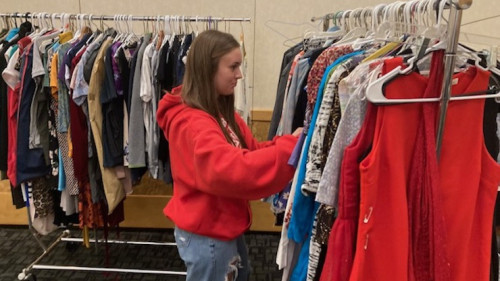
Two U.S. Representatives from opposite sides of the aisle came together virtually on November 10 for a bipartisan panel discussion on racial justice and police reform.
Congressmembers Antonio Delgado (D-NY-19) and Tom Reed (R-NY-23) were hosted by Dr. Chris Gibson’s political science class on Leadership and Political Change. They both embraced the imperative to heal, and stressed the need for elected representatives to listen to all their constituents, regardless of party affiliation. With the 2020 election now over, they agreed there is “a window of opportunity” to work toward resolution.
Reed said lawmakers need to “stay in the room and commit to staying engaged with these important issues,” and referred to the criminal justice reform First Step Act of 2018 as an example of success. Delgado acknowledged how today’s college students “shoulder a ton of responsibility” for addressing these issues but offered encouragement: “You will be in a position to lead because of the experiences you are enduring.”
The death of George Floyd in May at the hands of Minneapolis police sparked international outrage and calls for police reform. While social justice activists had been working for years to bring attention to the death of Black Americans by police brutality, Floyd’s death brought the long simmering issue to a boil. Lawmakers, educators and others have been earnestly engaging in conversations and protests to find a way forward.
Delgado and Reed said the focus for now needs to be on healing and bringing together the estranged and embattled sides. Specifics on reform such as a ban on chokeholds, increased funding for dashboard and personnel cameras, and more will be worked out in the near future.
Reed offered the success of the House’s Problem Solvers Caucus, of which he is a member, as an example of how two sides can come together with mutual respect to compromise and get legislation passed. The caucus features 24 Republicans and 24 Democrats who are committed to breaking gridlock and overcoming partisan politics.
“As we go into this new session, I see that there is a lot of common ground on police reform. Even with all of our division on this and other issues, I am one hundred percent confident that our America still works. I hope President-elect Biden seizes the opportunity to bring the country together and help solve problems,” he said.
Delgado, a Rhodes scholar who before entering law practice and politics worked in the music industry, partially credits rap and hip-hop with bringing social justice issues to the forefront in recent years.
“We were speaking out about issues like racism, misogyny, police brutality for years, and brought awareness of them into the mainstream.”
He said today’s college students are “ripe for growth and development as leaders, and he encouraged them not to give up hope.
“To begin racial healing, we must first accept that a lot of us are dealing with pain,” he said. “But as long as love is at the center, the conversation can start.”
Delgado carefully shared statistics to show how racism continues to manifest itself in America through poverty and violence, and how this needs to be understood before progress can be made on racial healing. Red-lining in real estate that created ghettos, lower funding of predominantly Black schools, mass incarceration and other factors still prevent Black people from achieving the same levels of financial, educational and career success as whites. Even though progress has been made in recent decades thanks to civil rights leaders and activists, the racist sins of the past still haunt our nation.
Reed bemoaned the “political industrial complex” that hamstrings representatives from making progress. An overemphasis on the “three Ps” of government – process, politics and policy – which was frustrating during the best of times, now means that lawmakers are on the defensive and simple procedures have been weaponized.
“We’re at critical mass right now,” he said. “This kind of culture breeds mistrust. We have to build relationships again.”
Both Reed and Delgado worked with the late Rep. John Lewis, a civil rights icon. He encouraged all his colleagues to show empathy and open doors, to be non-judgmental.
“Don’t go into conversations with a pre-ordained impression about whether or not people will be open to discussion about a certain issue,” said Reed.
Following their presentation, the Congressmembers took questions from the students.
Kristen Burger ’21 said, "It was incredible to be afforded this opportunity to speak in such a direct manner with members of Congress, especially given the topic is so much in the news today. I found the panel refreshing, giving us the chance to hear about how members on both sides of the aisle have taken an approach to questions surrounding police reforms. The event was focused on authentic and honest dialogue; in other words, a place to explore different points of view."
Tyler Simmons ’21 said, “I was honored to meet both Congressman Delgado and Congressman Reed this morning, where both of their aims relied on the emphasis of helping others. It was inspiring that Congressman Delgado and I share the same love for philosophy, political science, basketball, and service to others. I will be preparing to graduate from Siena next year and follow in his footsteps to attend law school. Seeing another individual who resembles me and who also shares the same passion for his work allows me to continue to pursue my dreams and pass down that the same passion for future lawyers to come.”

